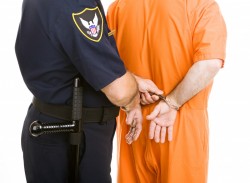 Correctional officers monitor and supervise adult offenders in a manner that ensures the safety and well-being of the public, the staff, and the inmates themselves. This is a definition that is given to us at the academy; but, the duties and training of a correctional officer are so extensive that it’s not fair to think of them as prison guards.
Correctional officers monitor and supervise adult offenders in a manner that ensures the safety and well-being of the public, the staff, and the inmates themselves. This is a definition that is given to us at the academy; but, the duties and training of a correctional officer are so extensive that it’s not fair to think of them as prison guards.
A GED would be sufficient enough to get a job inside a correctional facility as a correctional officer. Correctional officers are expected to communicate and interact with inmates with humility and professionalism at all times. The extensive training that officers receive at the academy is broad and prepares them to interact with inmates in a variety of situations. Because of the dangerous nature of the job, it is next to impossible to prepare for all the different situations that an officer will encounter.
The scenario training you receive at the academy is very helpful because it allows the training staff to curtail bad decision-making skills and weed out officers who are not well-suited for the job. It was not unusual for an inmate to go to an officer with personal problems they were experiencing with their family, friends, and loved ones. Sometimes officers are able to assist in resolving some of these issues, and if not, they are able to direct or assist the inmate in finding someone who is able to help them. Since inmates movements are restricted, it is up to officers to check on packages , check on their visiting status, deliver mail to them, pick up their mail, protect inmates from other inmates, assist inmates in finding work within the prison, assist them with getting into school, and help inmates send personal items home through R&R.
Some of the other duties for correctional officers are report writing, self-defense, first aid and CPR, giving testimony in court, interpersonal communications, hostage negotiations, gang intelligence, gang awareness and intervention, OSHA training, suicide training and or awareness, and the ability to diffuse hostile situations with inmates. Correctional officers are expected to attend classes 1-2 times a year to improve their knowledge and skills of the job.
Officers supervise inmates that work within the prison walls and outside on special work furloughs. They work in many areas of the prison, including the administrative offices of the prison. Inmates go through random and consistent body and cell searches that are conducted by officers. These are some of the duties that officers perform throughout their shifts.
Whether officers are willing to admit to themselves or not, officers work for inmates. This is something that is embedded into the psyche of the officers while they are in training at the academy. They are also told that their job is not to punish inmates because they are being punished by being incarcerated. It takes a certain type of mindset and personality to work as a correctional officer. If you understand that your job is not to use your badge to punish inmates, your job can be less stressful, thereby, decreasing your chances of being assaulted or having to use excessive force on inmates.
A correctional officers’ job encompasses so many skills that it is unfair to say that they are there to stop inmates from having any freedoms and to keep them locked up. It involves interpersonal skills that have to be taught at the academy. If you are unable to put yourself in an inmate’s shoes and treat them humanely, your job as a correctional officer can be very difficult to perform. Inmates allow officers to do their jobs; surely, they outnumber staff 200 to 2, in some situations. And some of them will tell officers, “We allow you to run the prison because we outnumber you.”

Leave a Reply